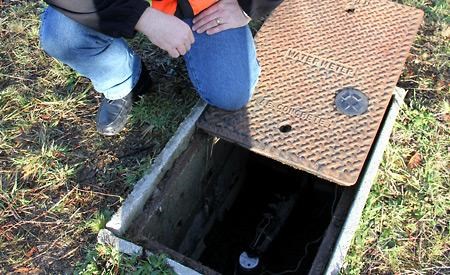A water conservation plan recommended by City of Powell River staff calls for a phased-in approach that would implement universal water metering by 2014.
Richard Stogre, manager of engineering services, outlined the plan to council at the December 15 committee-of-the-whole meeting. He explained that the city is required to submit a final report about the drinking water system upgrade project that includes a water conservation plan adopted by council. If the report doesn’t include the plan, the federal government will hold back 15 per cent of the funding.
“Protection of our water is paramount and actually, from my viewpoint, water is the reason we’re here, both water and sanitation,” said Stogre. “There can be no other core service that the city can deal with that’s more important.”
The city has three water sources, Stogre said, with Haslam Lake as the main source. The volume of water available is quite large, he said, but so is per capita water usage. In Powell River, on average, residents use 704 litres of water per person per day. The Canadian average is 390 litres and BC’s average is 490 litres.
If the city wants to apply for provincial funds in the future, it has to demonstrate that it is managing the resource for its residents now and in the future. Other reasons for having a water conservation plan include maintenance reduction.
“The less water we consume, the less water we’ll have to treat ultimately down the road,” Stogre said. “By conserving, we have less water demand on our system, therefore we may have the opportunity to allow certain developments to go ahead because we have actually reduced the amount of demand on the system.”
There are issues of both capacity and integrity in the water system, Stogre pointed out. “Everything we talk about is really old, 1950s, 1960s vintage, in some cases in the Townsite we’re talking about 100-year-old mains. Conservation goes toward making the system last as long as we can.”
Conservation starts with education, which has already started in the city, Stogre said. City staff have worked with schools to educate students and have made information about water conservation methods available to residents.
But the only tool that can show the effectiveness of conservation measures, as well as encourage conservation, is a water meter program, Stogre said.
Currently, the city charges residents a flat rate, whether they use large or small volumes of water. “There’s really no encouragement to conserve. The only real encouragement to conserve would be to be charged for exact consumption.”
Water meters would also enable the city to detect where leaks occur. “Part of that 704 litres per capita may be leakage. Once we have meters in place, from the technical side we’ll be able to measure where we have problems and identify how to fix those problems.”
Councillors were generally in support of the plan. Mayor Dave Formosa pointed out the city needs to reduce greenhouse gases to meet provincial legislation. He asked staff to research whether reductions in water usage and energy would be applicable.
Councillor Debbie Dee said she was supportive of water meters and volunteered to have her house used as a test sample in a water meter program to show that rates would be reduced as well as consumption.
Councillor Myrna Leishman said she supported the plan. “We talked about it, as you can see, in 2005,” she said. “It’s a little disheartening to see that we haven’t picked away at the bigger items on that, but I think that’s something we can go forward with at some point.”
The city has to continue to be pro-active, Leishman added, even though some residents say Powell River has so much water, why should people worry about it. “The world is faced with serious water problems and we may eventually get into a position where people are going to want our water,” she said. “Conservation has to begin now, not waste it.”
At the end of the discussion, council passed a motion directing staff to prepare a water conservation policy to be presented in January.



